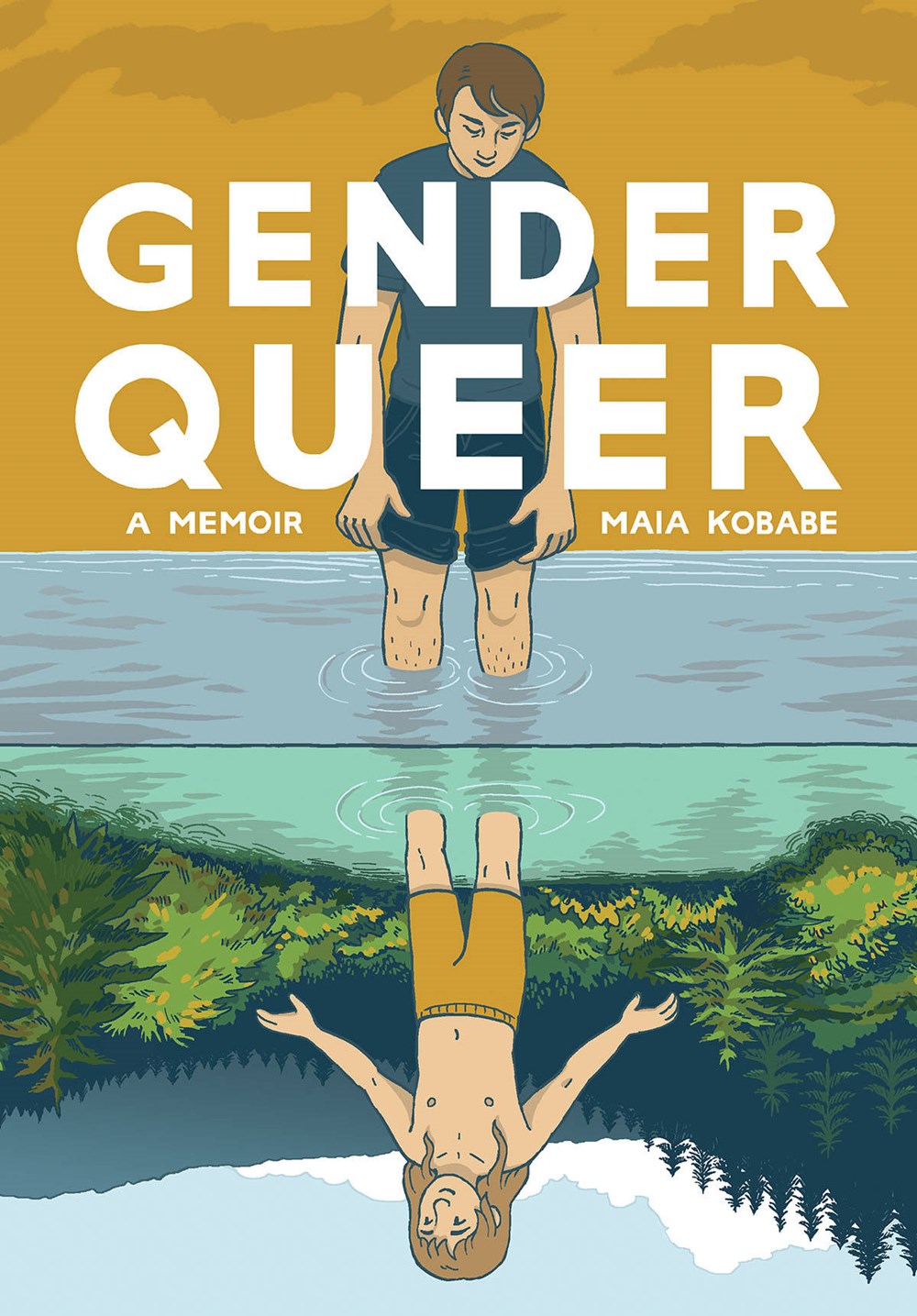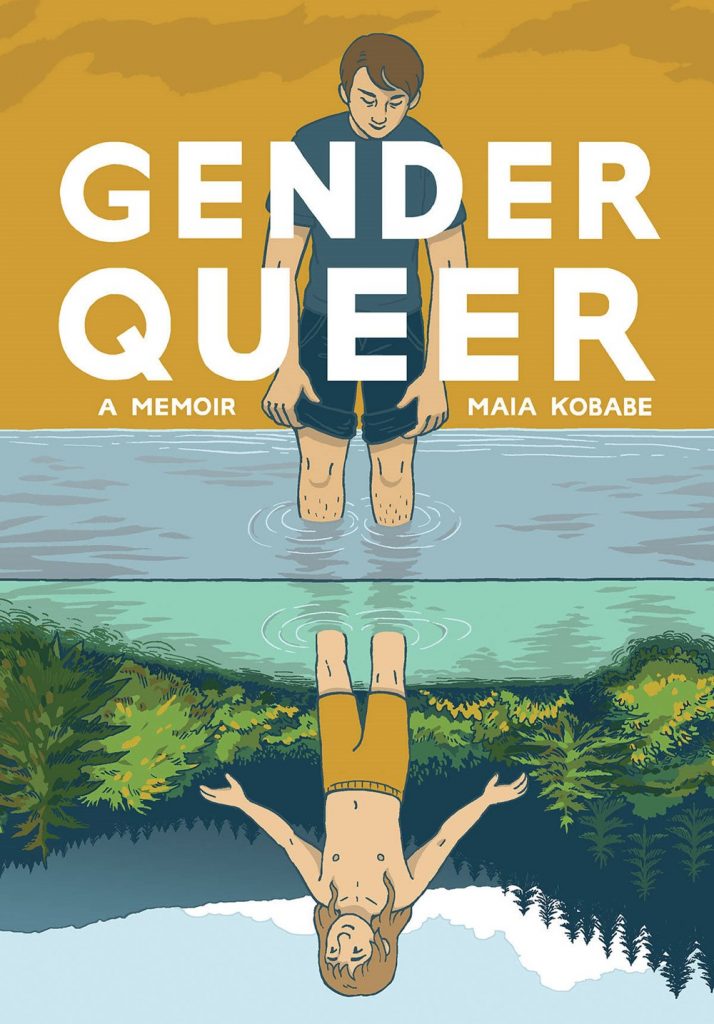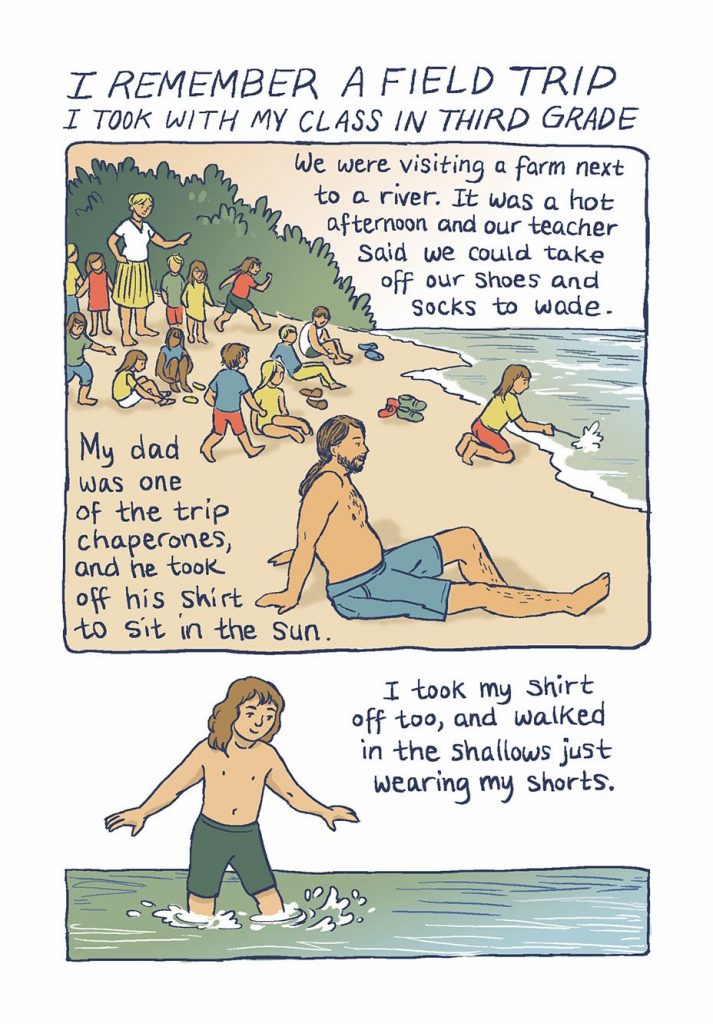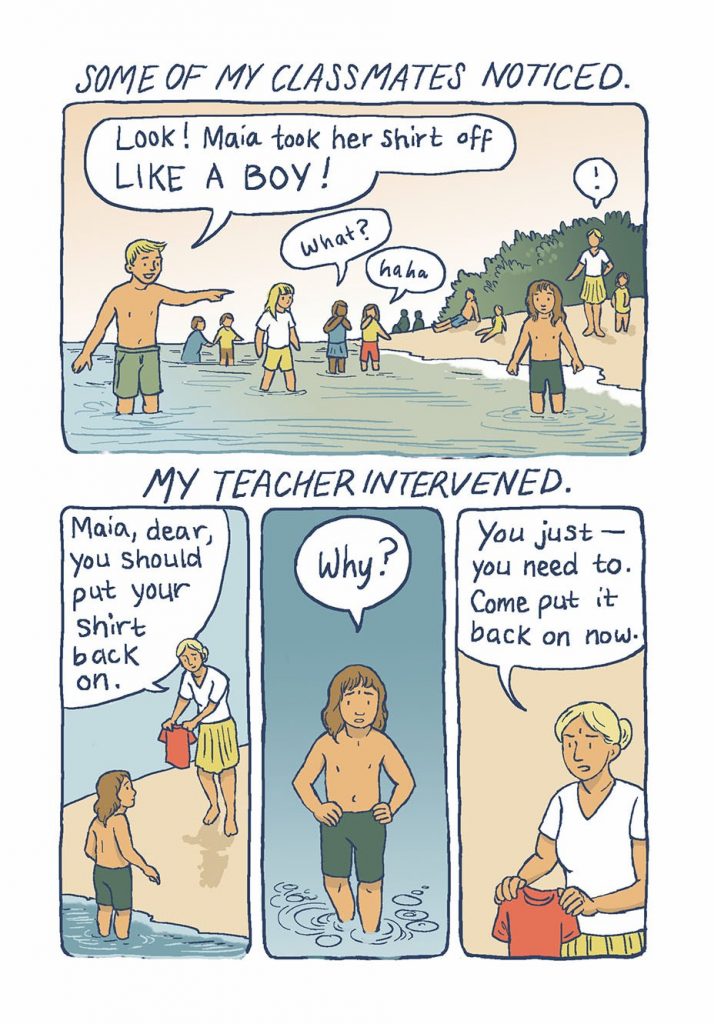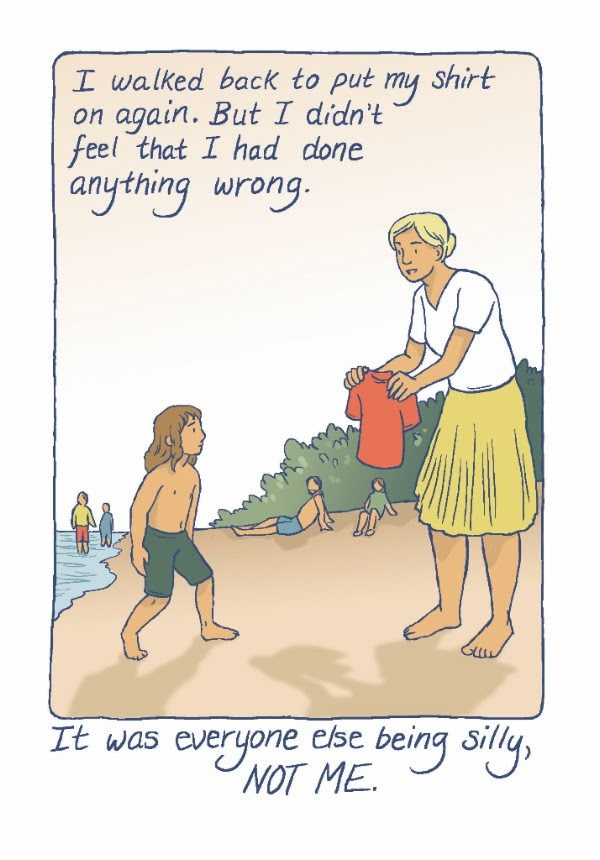Maia Kobabe’s recent memoir Gender Queer, recently published by Lion Forge, operates in two modes: first as a poignant personal history of growth and self-acceptance and an intimate revealing of eir struggles with gender in modern culture; and second, as a sort of introduction to nonbinary gender identities for cis-gender readers.
Let’s start with the lesser of these, which is the second mode – Kobabe, through eir exploration of gender, gives readers a bit of an explainer on specific terms and ideas; for example, the use of the Spivak pronouns (e/em/eir) to indicate that the person in question does not identify with traditional male or female pronouns he/her. Kobabe’s writing is very gentle, and integrates the more didactic parts of the book almost seamlessly into eir personal story. For people who have never reflected on their gender or the Western societal construction of the false male/female binary, Gender Queer opens the door to that conversation.
That conversation is important, but Kobabe’s work in Gender Queer is stronger when there is a clear focus on eir own personal experience with gender. From a young age, Kobabe isn’t sure what to make of emself, uncomfortable with being assigned female at birth, and truly uncomfortable with the concept of gender as a whole. At one point, e excerpts a passage from a childhood diary – “I don’t want to be a girl. I don’t want to be a boy either. I just want to be myself.” That desire to “just be myself” is the driving force of the book.
Kobabe’s art is capable and highly reminiscent of Lucy Knisely’s recent work. The parallel between Kobabe and Knisely is a powerful one; both are autobiographers, although Knisely is a little farther along in her career than Kobabe is in eirs. But Knisely’s early work was highly lauded, commercially successful, and included in college and high school curricula. I expect, if I were to speed up time and look at where Gender Queer is in a few years, I could say the same thing.
One major difference between Kobabe and Knisely, at least based on my reading, is how open Kobabe’s work is. Gender Queer has a lot to unpack, but to be blunt, Kobabe has truly laid a lot of things bare. Kobabe is not hiding in this book, and I feel a stronger sense of “truth” to Gender Queer than I ever did with Age of License or Displacement. That truth is uncomfortable, whether it’s Kobabe struggling with preventative health services at eir OBGYN or trying to explain to eir lesbian aunt that being genderqueer is not an internalized form of misogyny.
And Kobabe’s story, while at times heartbreaking, is filled with loving people – supportive friends, an accepting family. In some sense, this love and support makes it easier for Kobabe to share eir story. Kobabe doesn’t have to worry about getting thrown out of eir parents house, is able to go to college and get a good education, ends up in an advanced degree program. These are privileges that a lot of genderqueer people don’t have. There’s a lot of best case scenario here, and that’s okay! But there’s only so much you can see when the end of a journey is a mirror. With that said, I found Gender Queer to be tender, introspective, positive, and honest, and I expect this text to be formative reading for a lot of people. I found the book compelling, found Kobabe’s writing to be smooth, eir art competent.
As an aside, as a concern, as a tangent: Memoir can’t capture the experience of an entire group of people, nor can it be expected to. I have concerns about Gender Queer. Not that Kobabe’s work has not done its due diligence or anything like that. Rather, my concern with Gender Queer is with how the book is going to be used in the future, or how it will be construed. This is a complaint leveled not at Kobabe, but at the cis-gendered audience that will read Gender Queer. Gender Queer is an introduction to the world of LGBTQ literature, and a great book to start with. I really liked this book. But I also think it’s entirely possible that Gender Queer becomes the single book that people read about nonbinary people. And I think that readers who use Gender Queer as their “one genderqueer book” and fail to further explore the stories of trans and genderqueer people do themselves a massive disservice. This isn’t on Kobabe – it is on you, the reader. Immerse yourself in a lot of art by LGBTQ people, and you will be better for it. OK, that’s it, I’m out. See you next week.
Sequential State is made possible in part by user subscriptions; you subscribe to the site on Patreon for as little as a dollar a month, and in return, you get additional content; it’s that simple. Your support helps pay cartoonists for illustration work, and helps keep Sequential State independent and ad-free. And if you’re not into monthly subscriptions, you can also now donate to the site on Ko-Fi.com. Thanks!

